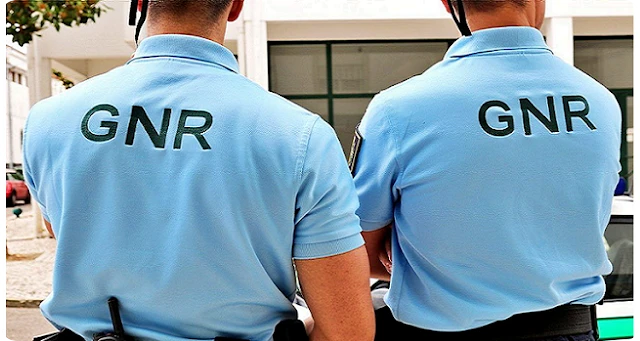Is Portugal a Safe and Secure Country?

•
min read


Take off for Portugal now!
Dreaming of life in Portugal? Start your journey now and access to our app!





Portugal's allure as an immigrant haven is undeniable, fueled by its captivating scenery, deep-rooted history, and dynamic culture. But at the heart of this attraction lies a powerful promise: safety.
Having personally navigated the relocation journey, we can attest to the transformative impact of feeling secure in your new home.
However, let's move beyond the surface and explore the true depths of safety in Portugal, arming you with the knowledge to make informed decisions.

Beyond the rankings: a closer look at Portugal's safety profile
Portugal's consistent high ranking on the Global Peace Index (GPI) is a solid starting point. Its 7th position in 2024 reflects a commitment to peace and security. But relying solely on a number can be misleading. Let's dissect the elements that contribute to Portugal's safety reputation:
- Remarkably Low Crime Rates: Compared to many Western nations, including parts of Europe and certainly the United States, Portugal experiences significantly lower crime rates, particularly when it comes to violent offenses. While petty crime exists, the overall sense of security is palpable.
- Visible and Effective Law Enforcement: The presence of well-trained and equipped law enforcement agencies like the PSP and GNR provides a reassuring sense of security. Their proactive approach and community engagement contribute to a safer environment.
- Stable Political Landscape: Portugal's stable democratic government prioritizes the well-being of its citizens, fostering an environment where safety and security are paramount.
What makes Portugal safe for immigrants?
Understanding Portugal's unique security landscape
Portugal's safety narrative is deeply rooted in historical transformation and strategic social development. The Carnation Revolution of 1974 marked a pivotal moment, transitioning the country from authoritarian rule to a robust democratic system that prioritizes social cohesion, economic equity, and individual rights.
Historical Context of Social Stability
Unlike many countries that experienced violent political transitions, Portugal's path was characterized by dialogue and consensus-building. This peaceful transformation eliminated systemic sources of social tension, creating a foundation for a society that fundamentally values peace and mutual respect.
Comparative safety metrics: Portugal in the Global context
The numbers tell a compelling story of security that transcends simple statistics. An in-depth examination reveals Portugal's exceptional position:
| Country | Global Peace Index (2024) | Violent Crime Rate (per 100,000) | Perceived Safety Score |
|---|---|---|---|
| Portugal | 7th | 0.5 | 85.3 |
| Austria | 4th | 0.7 | 84.6 |
| United Kingdom | 37th | 1.2 | 78.4 |
| United States | 122nd | 4.9 | 65.7 |
| Germany | 16th | 0.9 | 82.1 |
| Netherlands | 21st | 1.2 | 80.5 |
| Spain | 23rd | 1.5 | 78.7 |
| France | 58th | 2.1 | 75.4 |

Beyond the Numbers: Interpreting the Data
These metrics are more than just figures. Portugal consistently outperforms larger European nations, demonstrating a sophisticated approach to public safety that integrates social, economic, and legal strategies. The country's low violent crime rate is not an accident but the result of intentional, comprehensive social policies.
Portugal vs. the United States
For many Americans, Portugal's lower rates of violent crime and gun violence are a major draw. The absence of mass shootings and readily available firearms creates a significantly different environment.
Portugal vs. Other European Countries
Compared to some other European countries, Portugal often boasts lower crime rates and a greater sense of personal safety. Research comparative crime statistics to make an informed decision.
Structural approaches to public safety in Portugal
The Portuguese model of safety goes beyond traditional law enforcement. It represents a holistic approach to creating a secure society through multiple interconnected systems:
Legal Framework and Social Policies
Portugal's criminal justice system prioritizes prevention and rehabilitation over punitive measures. Social welfare programs provide robust support networks that address the root causes of potential criminal behavior.
This approach reduces economic desperation—a significant driver of crime—by creating pathways for social mobility and integration.
Law Enforcement Philosophy
The country's approach to policing is fundamentally different from more reactive models. Agencies like PSP and GNR are trained as community partners, not just enforcers.
This philosophy transforms law enforcement from a purely reactionary function to a proactive mechanism of social support and conflict prevention.
Cultural values and social dynamics in Portugal for Expats
Portuguese society inherently values nonviolence and conflict resolution. This cultural characteristic manifests in lower interpersonal conflict rates and a strong sense of community solidarity. For immigrants, this translates into a welcoming environment that prioritizes integration over marginalization.
Immigration Integration Strategies
Comprehensive programs support immigrants through:
- Language acquisition support
- Cultural orientation
- Legal protections
- Community engagement initiatives
These strategies go beyond mere administrative support, creating genuine pathways for social and economic integration.
Practical safety considerations for Expats in Portugal
While Portugal offers an exceptionally safe environment, immigrants should maintain realistic expectations. Most reported crimes are non-violent, and urban areas require standard precautions. Integration, language skills, and community engagement remain key to maximizing personal security.
What are the real safety challenges immigrants might face in Portugal?
Immigration is never a straightforward journey. While Portugal offers exceptional overall safety, understanding potential challenges provides immigrants with the most valuable preparation.
Urban safety dynamics
Portugal's urban centers present distinct safety profiles that require nuanced understanding. Lisbon and Porto, while generally safe, have specific areas where immigrants must exercise heightened awareness.
Geographic Risk Distribution
| City | Average Crime Rate | High-Risk Neighborhoods | Primary Crime Types |
|---|---|---|---|
| Lisbon | Moderate | Intendente, Mouraria, Anjos, Amadora | Petty theft, pickpocketing, Burglary, street crime |
| Porto | Low-Moderate | Campanhã, Lordelo do Ouro, Bonfim | Property crimes |
| Faro | Low | Monte Gordo | Seasonal tourist-related crimes |
| Setúbal | Moderate-High | Caparica, Amadora | Vehicle-related crimes |
| Almada | High | Costa da Caparica, Cova da Piedade | Burglary, street crime |

What are the safety challenges for immigrants in Portugal?
The most significant safety challenges for immigrants are not physical threats, but systemic integration obstacles. Language barriers, bureaucratic complexities, and cultural adaptation can create vulnerabilities that extend beyond traditional safety metrics.
Bureaucratic Navigation
Immigrants often face complex administrative processes:
- Visa applications
- Residency permits
- Work authorization
- Healthcare registration
These systems, while designed to be supportive, can become sources of stress and potential marginalization if not properly understood.
Economic vulnerability factors
Economic instability represents a critical safety challenge. Immigrants, particularly those without established professional networks, may encounter:
- Limited job opportunities
- Lower initial wage structures
- Potential exploitation in informal labor markets
⚠️ In the last case, search for ACT for guidance.
Socioeconomic Resilience Strategies
Successful immigrants develop proactive strategies:
- Language skill development
- Professional certification equivalency
- Networking within immigrant communities
- Understanding local labor market dynamics
Cultural adaptation challenges for immigrants in Portugal
Portuguese society, while welcoming, presents subtle cultural nuances that can create initial discomfort:
- Communication styles
- Professional etiquette
- Social interaction norms
- Family and community structures
Psychological Resilience
Immigrants who successfully navigate these challenges often demonstrate the following traits:
- Maintain open-mindedness
- Seek cultural learning opportunities
- Build diverse social networks
- Engage in language exchange programs
Legal and rights protection
Understanding legal protections becomes crucial for immigrant safety. Portugal offers comprehensive legal frameworks protecting immigrant rights, but awareness and navigation require dedicated effort.
Practical safety recommendations for Immigrants in Portugal
- Prioritize language learning
- Build diverse social networks
- Understand local legal protections
- Maintain updated documentation
- Develop economic resilience strategies

Portugal's Security Authorities
Guarda Nacional Republicana (GNR): Guardians of National security
The GNR represents a unique security force, bridging military and police responsibilities.
For immigrants, this means a comprehensive security presence that extends from urban centers to rural regions. Unlike traditional police forces, GNR officers are trained in both law enforcement and community integration.
Polícia de Segurança Pública (PSP): Urban security specialists
PSP operates primarily in urban areas, specializing in city-level security management.
Their approach goes beyond traditional policing, focusing on community-oriented security strategies that directly impact immigrant experiences.
Polícia Judiciária (PJ): Criminal investigation experts
The Polícia Judiciária represents Portugal's premier criminal investigation agency (kind of like FBI, CIA or MI5), functioning as a national-level investigative police force with a complex and critical mandate. Established in 1945, the PJ operates as a specialized criminal investigation police, responsible for investigating the most serious and complex criminal activities.
Its jurisdictional reach extends beyond traditional policing, encompassing:
- Serious and organized crime investigations
- Complex financial crimes
- Cybercrime
- International criminal networks
- Terrorism-related investigations
Unlike other security forces, the PJ maintains specialized units focusing on specific criminal domains.
Final words
Portugal offers a remarkably safe environment for immigrants. While challenges exist, proactive measures and a realistic understanding can ensure a secure and fulfilling life.

Start your new life in Portugal
Turn relocation stress into success with AnchorLess.
Relocating to Portugal made simple.






AnchorLess is not a bank, accounting, tax, investment, or legal advisor. We serve as an intermediary, streamlining your access to accredited financial and legal professionals for your relocation in Europe.








🇵🇹 MOVE TO PORTUGAL

Services
Guides
🇪🇸 MOVE TO SPAIN

Services
Guides
Resources
© 2022 - 2026 anchorless.io, all rights reserved.







